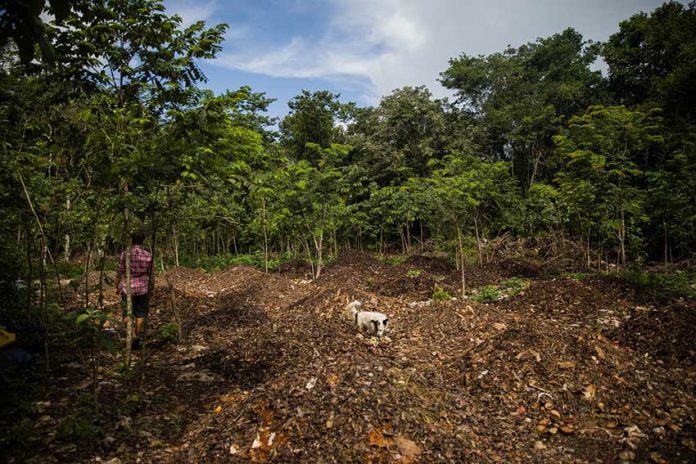Mauricio Jervis never intended to be a chef. Nor did he anticipate becoming an expert in compost and recycling.
But now, the owner and chef of a Tulum restaurant whose supplies are locally sourced is also the founder of an organic waste management organization that seeks to take on the town’s massive trash problem, brought on by rapid population growth and an explosion in tourism.
Still, Jervis said, he’s not a savior. Just a guy with ideas who saw a problem that needed addressing.
A native of Mérida who also dabbles in photography, Jervis first became aware of the town’s trash problem when asked by fellow chef and writer Juan Pablo Inés to photograph the former garbage dump site for a Yucatán magazine. Inés would later become a partner in Jervis’ restaurant.
That dump site, an eight-hectare, clear-cut part of the jungle roughly 9.5 kilometers from Tulum, received 160 tonnes of waste per day (40-60% of which was organic). The new official disposal site has been open only a year and is already at capacity.
Shocked at the level of inefficiency and contamination, where garbage seeps into the underground river systems which form the region’s freshwater cenotes and winds up in the ocean, Jervis sought to provide an alternative.
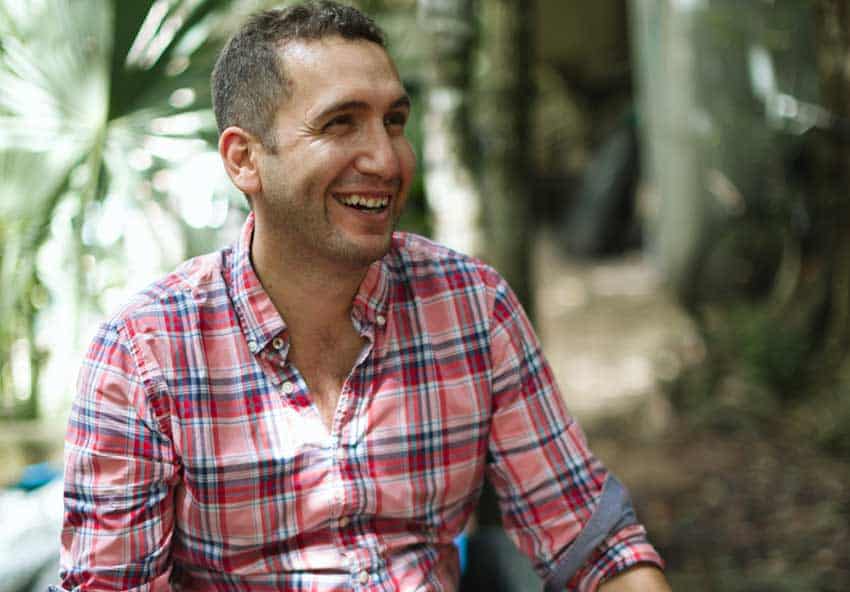
He founded Woolis Green Solutions in 2016 and now has 20 clients, including restaurants and hotels in the Tulum area. During high season, he and his team collect nearly two tonnes of organic waste each day, all of which travels in the back of a pickup truck to Woolis Farm, about a half-hour north of Tulum.
Jervis, also the owner and executive chef of Tulum’s Farm To Table restaurant, says the ideal scale of the recycling and composting project would be unlimited. But the issue is that some businesses don’t want to spend the money.
“Every restaurant prices things differently. At Farm To Table we have a 45% food and beverage cost which most people would be freaking outraged at,” he said.
“But what we are trying to do is completely different. On average, each restaurant produces about two kilos of waste for an average two-course menu, so you’re looking at about three to four kilos for a fine dining experience for two. For 100 people at our restaurant, we produce 200 kilos of waste per day. That’s a very general number that varies day to day. It’s really a result of whether we’re paying attention or not.”
Solutions for reducing waste in restaurants can be as simple as one of Farm To Table’s methods, which includes emptying the fridge each day before dinner service begins and seeing what can be used again. This results in an ever-rotating menu.
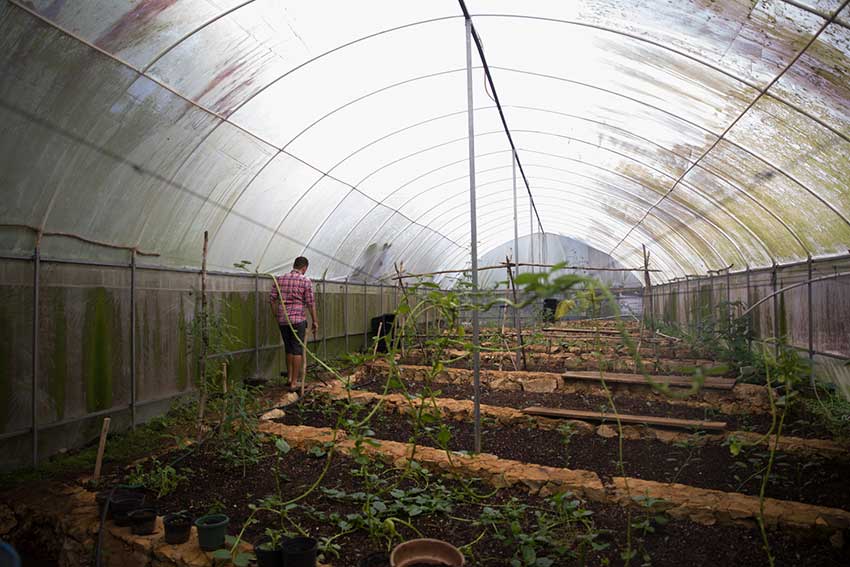
“You’re always going to have some sort of waste, it’s just how creative are you to reduce it,” Jervis said. “For us, it costs about seven pesos more on a dish to do this. You don’t have to make a profit on it, so instead of paying 150 pesos for three tacos on the beach, you have people pay 160 and you put on the menu that the extra 10 pesos is going toward a compost solution for the town.”
Jervis says that hotels and restaurants will often feign excitement at the proposal. Woolis, which gets its name from the Mayan word for “cycle,” will distribute boxes that fit up to 50 kg of waste, and will remove them for 550 pesos. A one-time staff training fee is 1,500 pesos, and businesses are charged a monthly collection fee of 3,500 pesos per tonne of waste collected.
All waste is taken to Woolis Farm, in the vicinity of nearby Puerto Aventuras, sorted and distributed for animal feed and aerobic and anaerobic composting which ultimately becomes the fertilizer and soil for the herb, fruit and vegetable gardens.
“There are restaurants that promote having compost and I know for a fact that they don’t,” Jervis said. “There are restaurants in town that literally publish with magazines saying that they compost and are healthy and local, but you’ll find smoked salmon and tuna on their menu, from Alaska. We advise restaurants that they shouldn’t offer it on their menu and their response will be ‘well, the customer wants it.’”
Jervis sees Farm To Table as one of the vehicles to spread the word around the region.
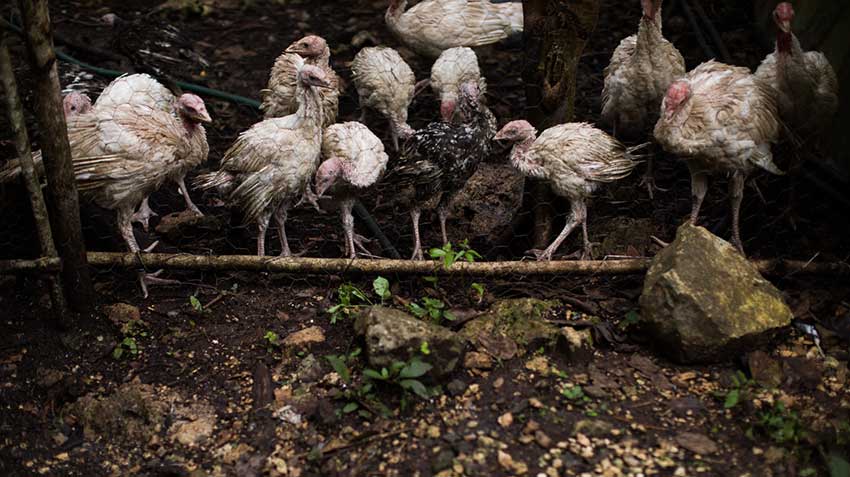
“The people I really want to reach are dishwashers, waiters, cooks, chefs; those are the people I’m going for,” Jervis said. “Management, owners; I don’t care about them. They should be educated anyway. The chefs and bussers are the ones who have their hands on it.”
Woolis Farm lies on a perpetually shady and bumpy dirt road leading from the highway into the thick of the jungle, where Jervis has taken over a parcel of seven hectares and a hacienda-style home.
Six people live and work on the farm, where chickens, pigs and any number of jungle animals roam freely. Jaguars, owls and monkeys have been known to make an appearance. Frogs and spiders are ubiquitous.
The state of Quintana Roo is blessed with abundant freshwater and sunshine, so little irrigation is needed. The property has its own cenote, which is fed by rainwater filtered through layers of limestone.
“Here, you taste that spice in the food which comes because there is activity in the soil,” Jervis said, handing me a piece of arugula nearly as potent as a habanero. These pigs, their pork is good for you. It is high in omega 9s, omega 2s and omega 6s. I learned that recently because a professor that is studying native breeds of pigs was here and he’s comparing the factory pig to the free range, waste-fed pig.”
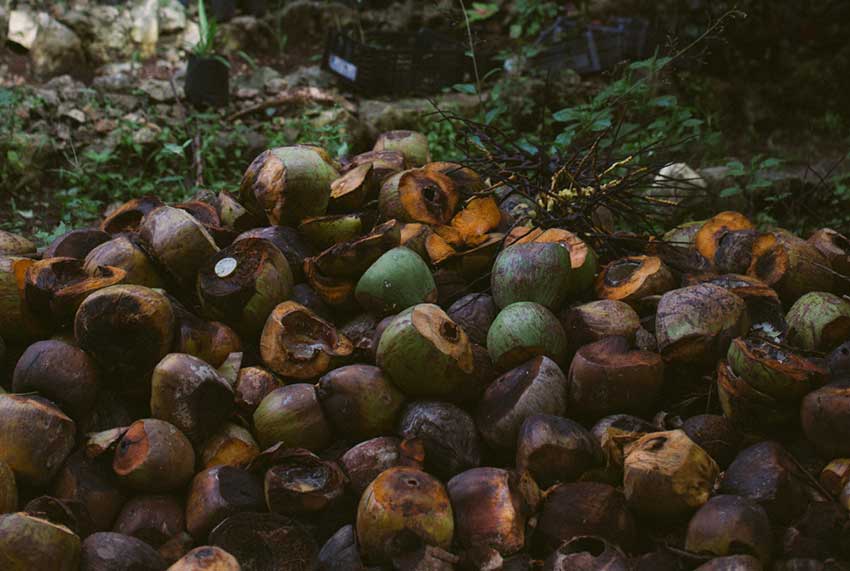
Woolis also aims to educate local children on how to be conscious with waste and about the underlying problems behind climate change.
“Society tends to be really small-minded when it comes to these problems,” Jervis said. “Plastic is enemy No. 1 today, but back when I was a kid, it was aerosol. We just keep looking at these one-dimensional things and say ‘if we fix this, we’ll be OK.’ But the biggest problem really isn’t plastic in the ocean, rather the production of plastic, and burning of fossil fuels and not taking care of our waste.”
Farm To Table opened in April 2018 on the main restaurant strip, which is the highway that passes through Tulum. The menu features all Mexican-made beverages and local food products such as lionfish, an invasive species which appears on the menu as a way to reduce harm to native fish.
Other dishes, such as duck tamal with cauliflower purée and grilled nopal filled with locally made cheese, are examples of the rotating menu options.
Still, Jervis says Farm To Table is approaching the social aspect of the food chain with its organic farm, which will make organic food available to a wider audience. The idea is to create clean food on the cheap. The reason the restaurateurs haven’t jumped on the bandwagon with him, he says, is based on greed.
Megan Frye is a writer, photographer and translator living in Mexico City. She has a history of newsroom journalism as well as non-profit administration and has been published by several international publications.
Photographer Jenna Belevender is based in Detroit and has a strong background in editorial, documentary and environmental portraiture.
